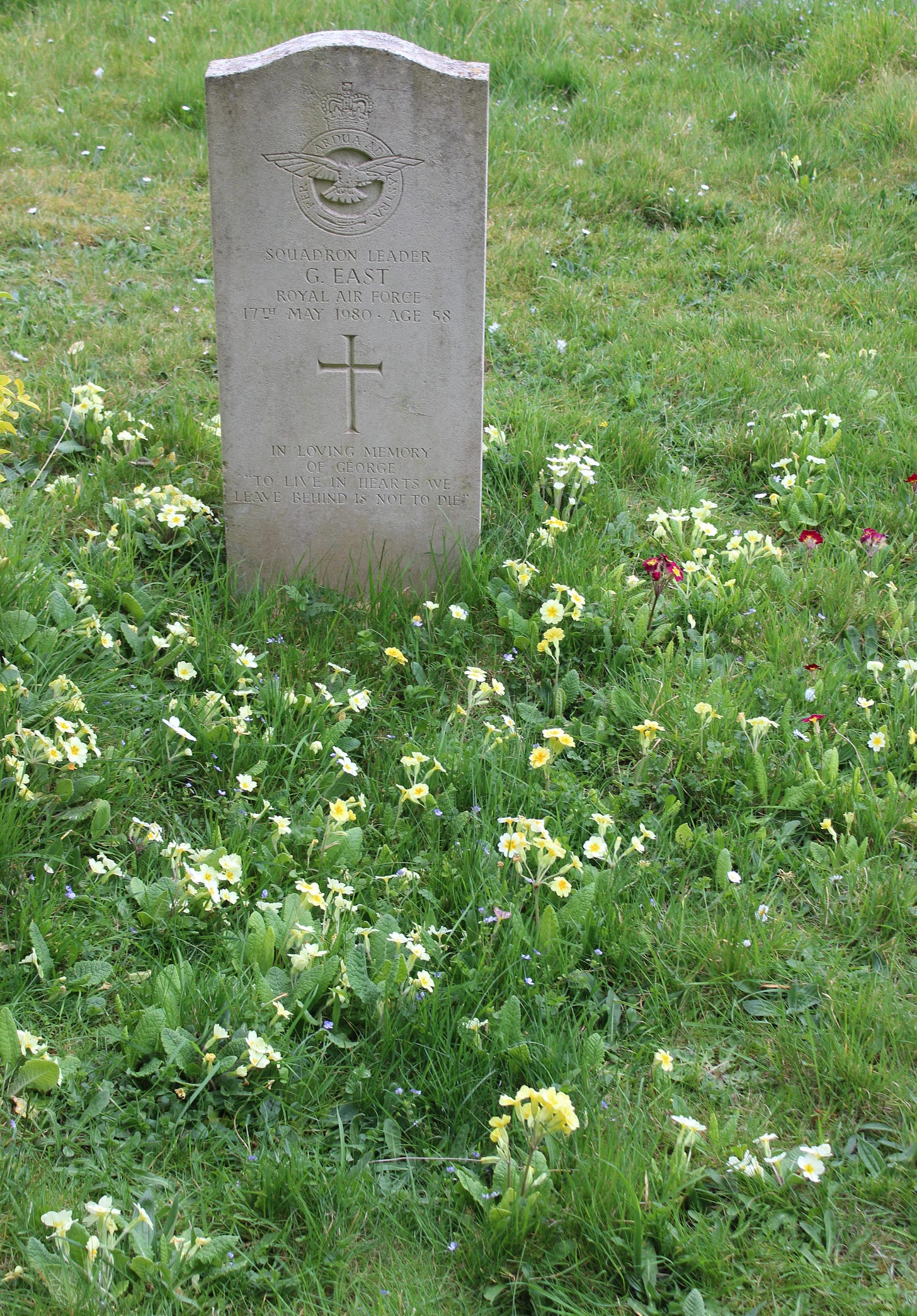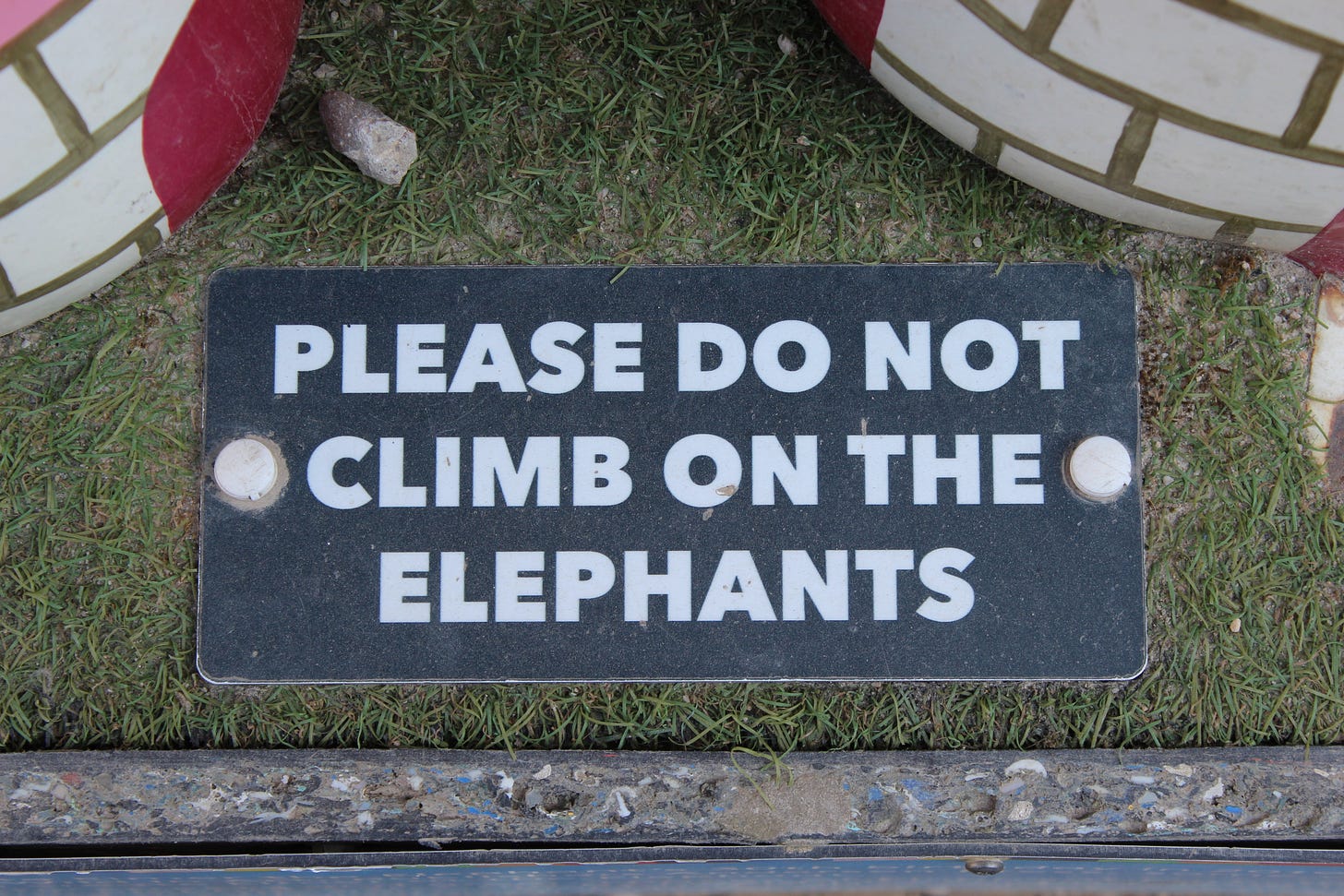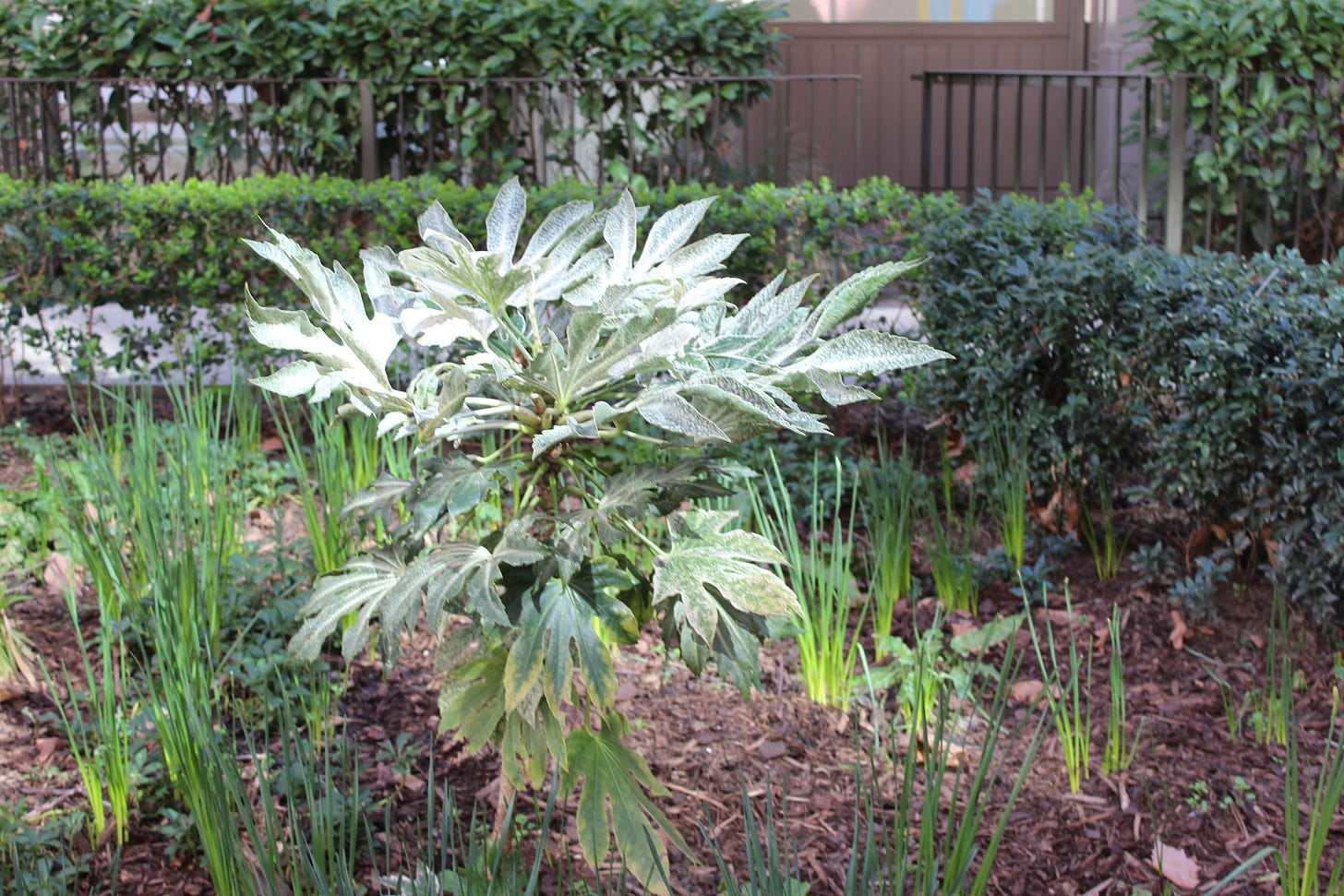A choice of a kind at every moment: seek out the light or focus on the depreciation of the world? The poetic appears in between, a contemplation that accepts joyfully or mournfully, gently or violently. A grave is a starkness or a tender rest.
There’s no doubt that the place I’ve lived (for obscure reasons) for fifteen years—and already somewhat battered to begin with—is, like much of the country, in decline. One of the depressing things about decline is how it always takes the same forms: more despair, more dirt, more chaos, more crime, more extreme intoxication, more madness, more violence. A recent fatal stabbing brings police in a sweep to walk through the area, but they appear more like body collectors than enforcers or representatives of order. Would that decline could take a surreal and unexpected character, rather than the predictable symptoms. Exotic animals, perhaps, or new colours.
Shops have closed or are in the process of closing: the high street chemist with a security guard nevertheless loses several thousand pounds of stock a month and can’t go on. Greggs is an unofficial food bank, and hapless Chinese students run pointlessly after phone thieves on bikes. The local park sees enterprising dealers at work from 7am until late. No one has more determination than the person looking for hard drugs—that specific walk, as if off to convey urgent news, like Marathon outrunning his own death. It’s almost reassuring when the drunk who roars and shouts insults returns for another day: life is thick and persistent, albeit loud and mildly frightening. Drills large and small day after day.
A man pisses up the side of our building, looks up and notices I’ve seen him from the balcony. I’m surprised he apologises, but he does. Someone’s dog, leashed but untethered to an owner, jumps up at me, pinning me with fear to the park railings. Striking blue eyes, pure muscle, territorial. I shout “where are the owners!” and “get your dog!” but they are nowhere to be seen. I take another detour, annoyed because this was already my second route, avoiding the market where people were randomly stabbed (one person died) in a knife attack on Remembrance Sunday last year.
I wonder about where the people who govern us live and whether it really is as simple as them not seeing how it is that most people live. The revealed preferences of the wealthy are for cleanliness, security, order. If you live in a place so arranged you can probably pretend to yourself that the less ordered places aren’t so bad, and that basically everything is probably fine. Or you don’t care. Or perhaps you even like the idea that other people live in declining places—it proves your worth, perhaps, your good sense.
The pigeons carry on joyfully attacking each other, midway between indifferent lust and competitive murder. They’ve taken to hiding behind the opaque glass when I step outside, having realised that I’m not going to bother them, saving time to get back to feeding. And if I sit still long enough with the door open, the bolder among their number goes for it anyway. Two of them are here now, one standing in seed, the other nibbling at the edges, pretending I can’t see him.
A recent walk with my parents in the countryside: skylarks, bluebells, the old quarry and the new, orange-tips, crows, rooks, pheasants, a muntjac, sheep with their lambs, two collies, a farmer, blackthorn, red kites and dry-stone walls. My father has purchased a large water gun from Germany to shoot the pigeons from the tree as their droppings are rotting a patch of grass he likes. My parents have just replanted unwanted pot plants from a house-clearance in their garden rather than let them die. I water them, stains in the bed. They regularly pick up the rubbish from their street, which has only two houses some distance apart. Cider cans, sweet wrappers, rubbish bags thrown from car windows, drivers imagining that God doesn’t see them between hedgerows.
Shoplifting has become a problem there too. A local shop next to the airstrip sells guns, animal feed, horse tack and expensive rural labels - Burberry, Schöffel, and the brand of hat that the princess wears with the pheasant feather. It’s amusing to try on the brass button coats. One woman, who drove up with a horsebox, told her children to walk out with stolen goods. The shop’s owner named her on Facebook, and she rang him, irate to be publicly shamed. He refused to take it down unless she paid up which she did, claiming that she did it because her husband had left her and her children suffered from mental health problems. Other thieves walk out wearing multiple items of clothing: the store owners can’t, for some legal reason or other, physically touch them. Besides, the thin residue of Christian ethics has collapsed completely: why shouldn’t I steal from the shop owner who after all has more than me? My life’s a mess, why shouldn’t I take something to make me feel better? All of life is a reparation for the fact of life itself.
I recall an act of teenage shoplifting: a Michael Jackson cassette single from Woolworths (RIP). The song was “Give Into Me”, whose lyrics are oddly domineering: “Don't try to understand me/Just simply do the Things I say/…Give into Me”. In a strange act of cosmic karma, this song accompanied a magician’s act we once saw on a boat, where the man appeared to be thrusting his fist through the midriff of his female assistant. My father, disturbed by this and perhaps a little drunk, collapsed. Crime doesn’t pay, one is made to understand.
Would that we could learn not by experience but by pre-emptive explanation. But we cannot, or at least not often.




